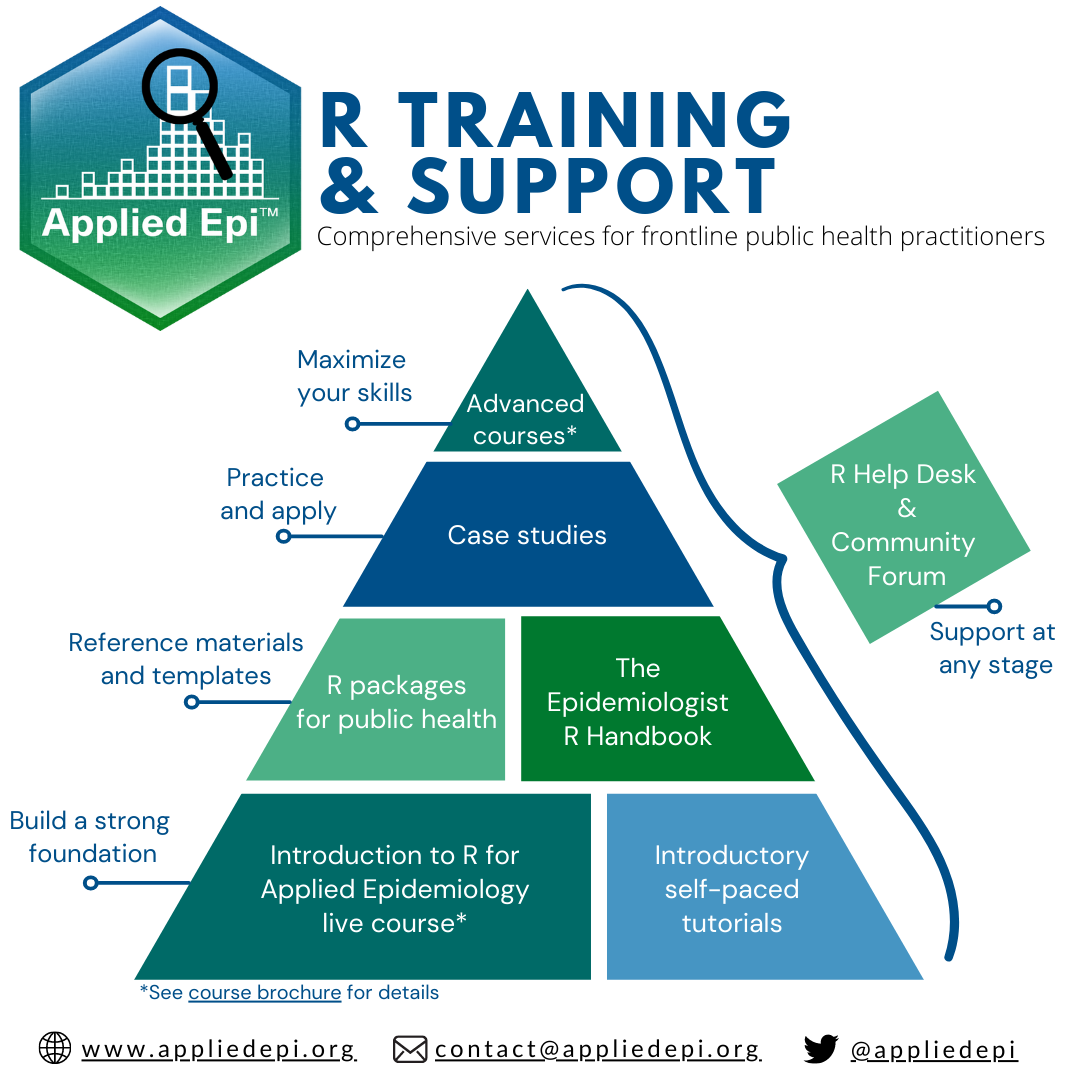Why R?
Why Applied Epi is promoting R

R is a free, open-source analytical tool, used by many disciplines, that has existed for over 25 years! Although Applied Epi did not invent R, we do believe that R is a perfect vehicle to transform epidemiology to be more more advanced, efficient, standardized, accessible, and equitable.
Widespread adoption of R can transform epidemiology
Most frontline epidemiologists only have access to sub-standard tools
The tools utilized by most ground-level practitioners are sub-optimal for today’s demands.
Globally, Microsoft Excel plays a prominent role, but is error-prone and offers average users limited analytical functionality*. Similarly, “point-and-click” software like Tableau and PowerBI offer fast learning, but limited possibility for customized analysis.
True analytical freedom comes with software in which the user writes explicit, reproducible code instructions, enabling complex data transformations and customized outputs. But in many settings, license fees prevent use of such commercial software, like SAS and Stata.
*Note that R does not replace Excel, but instead works alongside it, enhancing and strengthening workflows.
R is cutting-edge and custom-built by users
Because R users learn a programming language, the possibilities for customisation are unlimited. Users can write instructions to combine multiple data sources, execute complex transformations and models, produce automated reports and dashboards, and even build websites (like this one!).
Importantly, R is open-source. This means that the millions of R users create and validate new tools at an incredible pace. The rapid development of localized R tools specific for COVID-19 response highlight the advantages of this structure.
R is achievable and community-driven
Over its 25 years of existance, R has evolved to become a relatively easy coding language to learn, with the advent of a friendly user interface (RStudio) and code syntax (the tidyverse). Moreover, vibrant support communities of R users, such as R-Ladies, exist all over the world.
R is not just a new tool, but a new culture advancing equity
As an open-source language, R gives end-users creative agency and decentralises innovation. An R user in any part of the world can write code to produce a tool, share it, have it be verified by the community, and watch it be adopted widely. This empowerment of end-users is paramount to a more equitable epidemiological community.